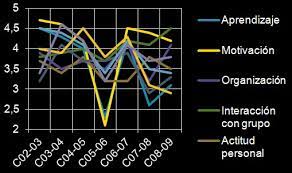In close cooperation with the Institute of Education Sciences of our University ICE – UPC , we investigate which are the skills that a Professor should have in Higher Education, and how to acquire them during a Scholar’s professional career.
Based on our research, we have established an innovative Postgraduate Degree in STEM Education with a syllabus design based on Competencies. Dr. Perez-Poch has been Deputy Director of ICE – UPC (2015-2018) and the Academic Director of this Degree (2016-2024).
The program is offered by Fundació Politècnica de Catalunya and is free of charge for the teachers in our University.

Our current research lines include:
– Use of Multimedia and Computer Applications (including jutge.org and Moodle) to promote both online and hybrid teaching strategies.
– Just-In-Time Teaching applications.
– Cooperative Learning
– Project-Based Learning
– Analysis of the effectivity of different learning strategies (both qualitative and quantitative).
Our Graduate Students (MSc/PhD: see Our Team section for contacts and details) can pursue their goals in the field of STEAM Education.
Our University is one of the few polythecnic universities in Europe to offer a PhD program in STEAM Education, which has been promoted from our research group EDUSTEAM and ICE-UPC.

Results from a students’ satisfaction survey SEEQ suggest an improvement in the learning context of a subject at EEBE-UPC.
Our group participates in the following EU Project led by Dr. Ariadna Llorens:
“Accelerating towards Education 4.0 in Higher Education Institutions”
European Project funded by Erasmus+ programme – KA203 Strategic Partnerships for higher education
Funding (UPC): 39.410,00 € | IP: Dra. Adriana Llorens (ariadna.llorens at upc.edu) | Duration: 2020-2023.
TEACH4EDU4 project consortium consists of seven universities from seven European countries: Faculty of Organization and Informatics, University of Zagreb (Croatia – leading institution), The Open University (United Kingdom), University of Žilina (Slovakia), University of Belgrade (Serbia), University of L’Aquila (Italy), Tallinn University (Estonia) & Polytechnic University of Catalonia UPC (Spain).
The project TEACH4EDU4 includes higher education institutions joined in the partnership to enable its teachers and students a unique exercise in acquiring new skills and new teaching methods in line with the developments in Industry 4.0. Project activities are designed to enable the creation of the environment for implementation of new learning and teaching approaches in computer science and related disciplines.


1. Perez-Poch, A.; Sánchez-Carracedo, F.; Salan, N.; Lopez, D. Cooperative learning and embedded active learning methodologies for improving students’ motivation and academic results. International journal of engineering education. 2019. Volume: 35. Number: 6. pp.: 1851 ~ 1858. <http://hdl.handle.net/2117/171236>.
2. Olmedo, N.; Martinez, M.; Perez-Poch, A.; Amante, B. Perception of the acquisition of generic competences in Engineering Degrees. International journal of technology and design education . 2018. Volume: 28. Number: 2. pp.: 495 ~ 506. <https://doi.org/10.1007/s10798-016-9390-z>, Q3, Impact Factor = 1.34.
3. Olmedo, N.; Sánchez-Carracedo, F.; Salan, N.; Lopez, D.; Perez-Poch, A.; Lopez, M. Do female motives for enrolling vary according to STEM profile?. IEEE transactions on education. 2018. Volume: 61. Number: 4. pp.: 289 ~ 297. <https://doi.org/10.1109/TE.2018.2820643>, Q2, Impact Factor = 1.2.
4. Lopez, D.; Perez-Poch, A. Design of a STEM lecturer-training programme based on competencies. International journal of engineering education. 2018. Volume: 34. Number: 5. pp.: 1495 ~ 1503. <http://hdl.handle.net/2117/121588>.
5. Perez-Poch, A.; Olmedo, N.; Sánchez-Carracedo, F.; Salan, N.; Lopez, D. On the influence of creativity in basic programming learning at a first-year Engineering course. International journal of engineering education. 2016. Volume: 32. Number: 5 (B). pp.: 2302 ~ 2309. <http://hdl.handle.net/2117/97382>.